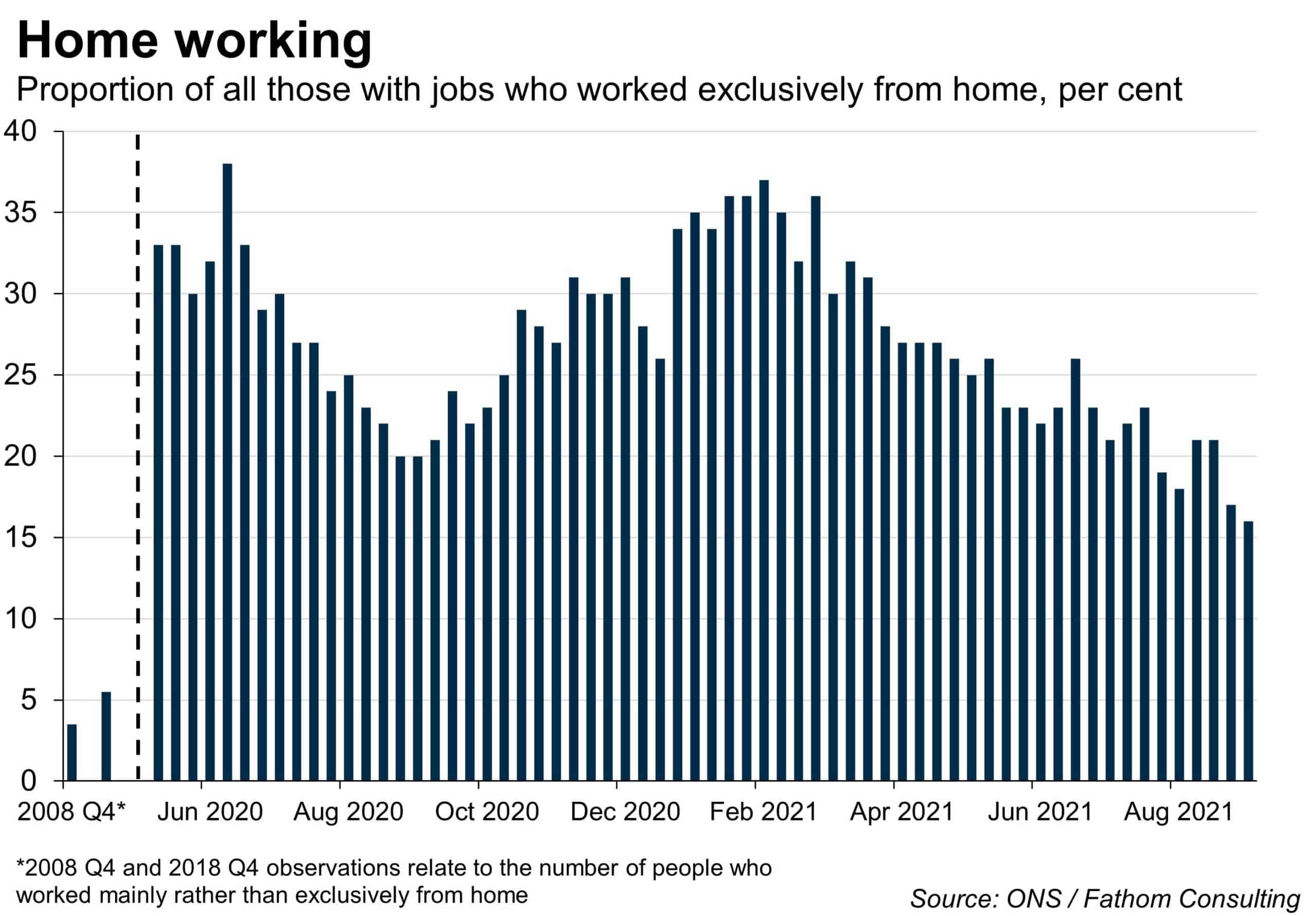Taking into account the higher rates of pay typically enjoyed by those who are able to work from home, we estimate that, during the early stages of COVID-19, close to 50% of UK GDP was being produced in private homes. To me, that statistic is still remarkable. Among many other things, the pandemic taught us that there is a category of work, including more or less all office-based work, that can be carried out remotely. We can debate the extent to which working from home exclusively is less efficient (it probably is), and deprives us of the social contact that we need to perform to our best (it probably does), but the fact is, for much of last year, the work got done. The proportion of people working from home exclusively is now at its lowest since the pandemic began. But if we take the 38% who worked from home exclusively during the early stages of the first lockdown as a proxy for the number of jobs that can in principle be carried out exclusively from home, close to one half of people who can work exclusively from home continue to do so.
[Please click below to read the full note.]
